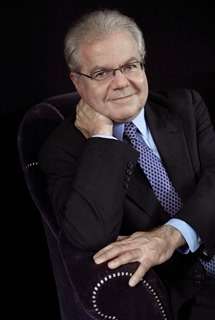|
Back
Not the Funeral March New York
Isaac Stern Auditorium, Carnegie Hall
04/22/2017 -
Franz Schubert: Four Impromptus, D. 935
Samuel Adams: Impromptu (after Schubert) (New York premiere)
Frederic Chopin: Impromptus in A-flat Major, Op. 29, in F-sharp Major, Op. 36, & in G-flat Major, Op. 51 – Fantaisie-Impromptu in C-sharp Minor, Op. 66 – Sonata No. 3 in B Minor, Op. 58
Emanuel Ax (piano)

E. Ax (© Lisa Marie Mazzucco)
“The year 1910 was the centenary of Chopin’s birth... Two pianists were to share the program, Ignaz Friedman, the noted Polish virtuoso, and myself. He was in charge of the first part, including the Funeral March Sonata, and I had the second part with the B minor Sonata.”
Arthur Rubinstein, My Young Years
About twenty years ago, musicologist Joseph Horowitz addressed the New York Wagner Society with his topic being “Wagner and Anti-Semitism.” During the question period, I asked him to expound on some of the other famous composers who were also decidedly anti-Semitic. We discussed Stravinsky, Mussorgsky, Richard Strauss and Chopin. It is interesting to list some of the most passionate advocates for the latter and discover how many of the great Chopin performers have been Jewish: Vladimir Horowitz, Rubinstein, Friedman, Vladimir Ashkenazy, Lazar Berman, Shura Cherkassky, Eugene Istomin, Byron Janis, Evgeny Kissin, Josef Lhévinne, Benno Moiseiwitsch, Ignaz Moscheles, Solomon, etc.
Clearly, music transcends bigotry and politics (something has to!). Let’s add Emanuel Ax, who came from a Polish-Jewish background to perform Chopin, to the list. Manny Ax has been with us in New York since the 1960’s and we never tire of him. Not just the pairings with longtime partner Yo-Yo Ma (they still hold the record for the duo with the shortest surnames) but as a profound and inclusive soloist of the highest order. Reaching back to his (and our) roots in Chopin was a sentimental journey for us all.
But first Schubert. This week, the Mostly Mozart Festival announced that this summer the emphasis will be on this amazingly creative man who lived such a short life but left over 1,000 pieces for posterity. The Four Impromptus, D. 935 are posthumous (the composer died at 31) and are all amazingly creative jewels. What was remarkable about this performance was the manner in which the soloist created and then maintained the character of improvisation and distinctness. No. 1 had a lovely flow while Mr. Ax maintained a gentle, nimble touch throughout. The piece ends quietly and there was a proper pause at its conclusion, however the created peace fell apart with a prolonged period of audience applause. Henceforward, Ax rushed the openings of succeeding efforts, even holding the first hand position over the keyboard immediately after the conclusion of the preceding work to try (unsuccessfully) to eliminate this intrusive behavior.
The A-flat Major had a serious valedictory feel while the B-flat major was decidedly delicate with a dark undercurrent in its middle section. Finally the 4th in F minor was instantly infectious, employing the hemiola effect (two measures of three equal rhythmic notes become three measures of two) and the instant excitement was unforgettable. Graceful and yet demonic, this performance brought into bas relief the uniqueness of style of each of its four parts. However, there was the feeling that Ax had lost the battle with the applauders, an insoluble problem that simply got worse as the evening wore on (even the page-turner received a generous round of hand-clapping).
Samuel Adams is the son of John Adams (talk about Anti-Semitism!) and Mr. Ax commissioned him to realize a set of works to interweave with the aforementioned Schubert pieces. One of Adams’s efforts was introduced this evening. Crushingly repetitive, the same figure is intoned ad nauseam in the left hand alla Philip Glass. The composer states that he created these pieces to be interwoven with the Schubert but “I imagine that they could also be performed on their own...” but why?
An experienced critic listens to a young pianist with one ear attuned to the notes and the other to the approach. Once one attains the mastery of an Ax however, the performance is judged more on its poetics. Here Mr. Ax shone, even as he continued to lose the war of the applause. The Allegro maestoso was regal and weighty, but with perhaps too much riding on the sustaining pedal for my taste. The Largo was the premiere performance of the night, caressed with a delicacy and ardor unsurpassable. The evening as a whole was a bit strange and awkward but the playing was genuine, heartfelt and masterful.
Fred Kirshnit
|